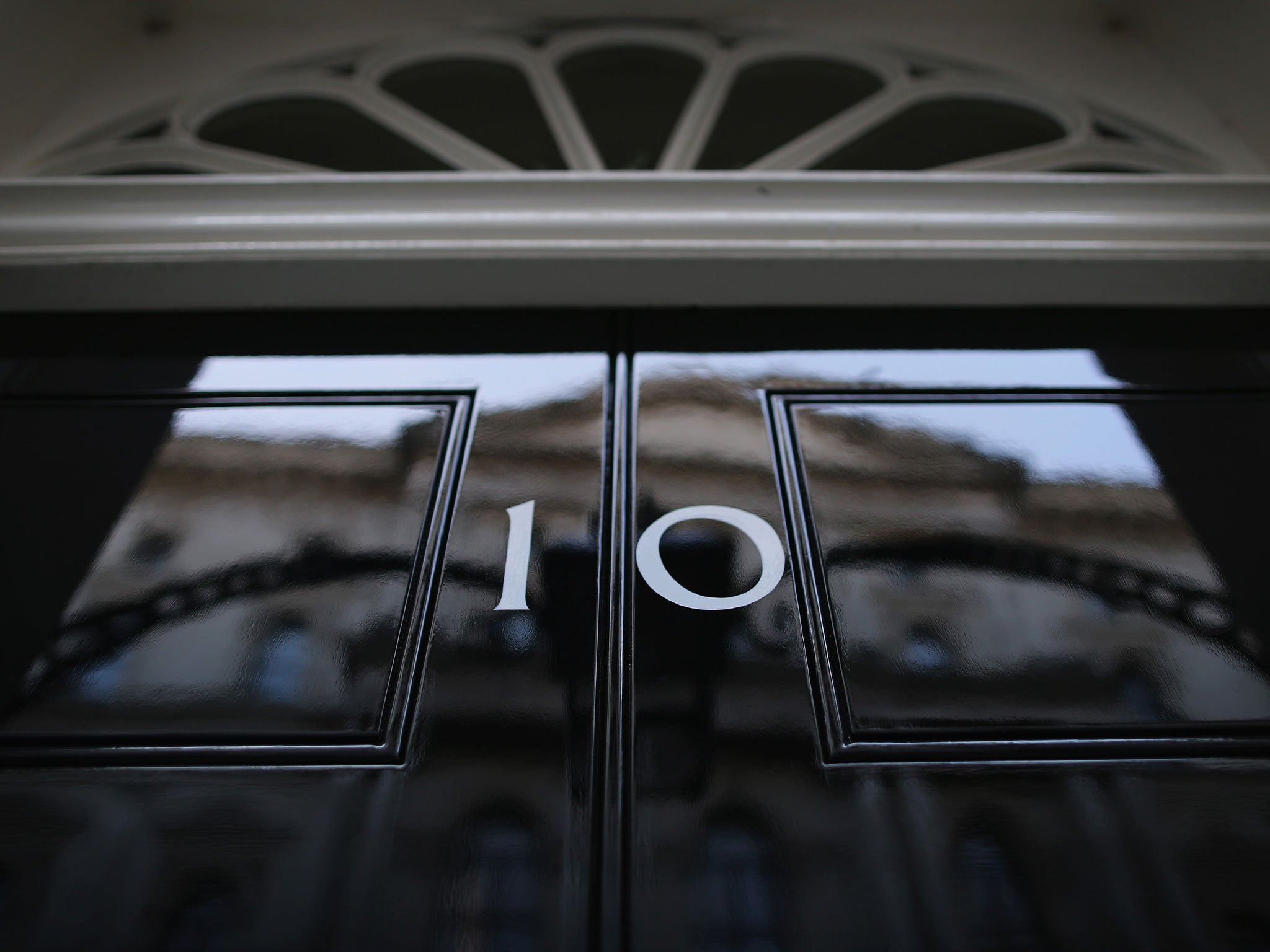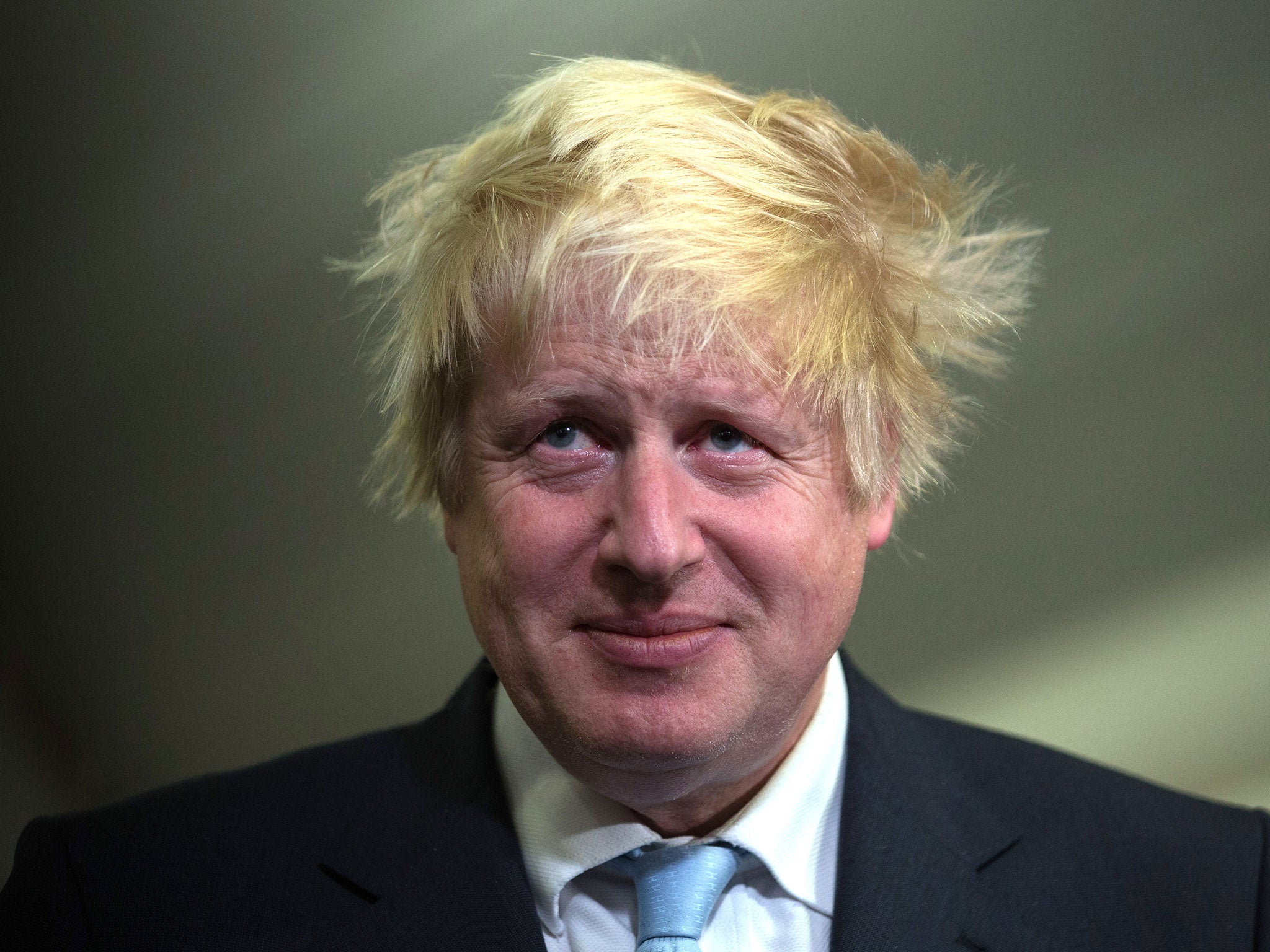We all know the face of Britain's next Prime Minister – so why do we know so little about his politics?
We all know who will come to stand against Osborne for the next Tory leadership. Who else could it be?


Your support helps us to tell the story
From reproductive rights to climate change to Big Tech, The Independent is on the ground when the story is developing. Whether it's investigating the financials of Elon Musk's pro-Trump PAC or producing our latest documentary, 'The A Word', which shines a light on the American women fighting for reproductive rights, we know how important it is to parse out the facts from the messaging.
At such a critical moment in US history, we need reporters on the ground. Your donation allows us to keep sending journalists to speak to both sides of the story.
The Independent is trusted by Americans across the entire political spectrum. And unlike many other quality news outlets, we choose not to lock Americans out of our reporting and analysis with paywalls. We believe quality journalism should be available to everyone, paid for by those who can afford it.
Your support makes all the difference.Why do we know so little about our next prime minister? This may seem a strange question, given that I am talking about Boris Johnson, the second best-known politician in the country. In a poll three years ago, 91 per cent correctly identified his photo. Only David Cameron, recognised by 94 per cent, was more familiar.
We know a lot about him, of course. His hair, his school, his bikes, his whiff-whaff and his private life. But we know little about what he believes and what he would be like as prime minister. In many cases, people insulate themselves from these questions by dismissing the possibility of Bozza4PM as absurd. He is not serious. He is a self-parodying television comedy personality, they say.
Well, have I got news for you. Nothing is certain, of course, except George Osborne’s taxes, but it is getting harder to see who is going to stop Johnson from becoming prime minister.
Let us consider the rules governing Conservative leadership elections. Tory MPs will hold a series of votes to choose two candidates; then party members will make the final choice between the two. Almost the only thing that matters in analysing this election is: who is going to be the second name on that ballot paper?
The first name is almost certain to be Osborne’s, even though only 62 per cent of the public can name him. One of the respects in which he resembles his Hated Predecessor, Gordon Brown, is in his operation of the machine politics of self-interest. He has an organised following among Tory MPs. Ministerial ranks are populated by creatures grateful for his patronage. Ambitious backbenchers look to him for preferment.
As with the transition from Tony Blair to Brown, the moment that Cameron put a time limit on his tenure MPs looked past him to his successor. Brown, the inevitability candidate, secured so many pledges of support from Labour MPs that no one else could secure enough nominations to stand. Osborne is not in such a commanding position, not least because the Tory rules are different.

When the MPs’ ballot is held, someone has to come second. I think that will be Johnson. Who else could it be? I no longer think it is likely to be Theresa May. She does not seem to be running a campaign. The Home Secretary is not entertaining MPs or asking them for “advice”. Could she be the “Leave the EU” candidate? I don’t think so. By the time of the leadership election, the referendum will have been and gone. Only if the country had voted to leave the EU, and May had advocated leaving, would she stand a chance. I think neither is likely.
Nicky Morgan, the Education Secretary, intends to give it a go. She could be the “beige” candidate, the centrist John Major of the 21st century, although the only interesting thing she has ever said was to repudiate her opposition to gay marriage. In private, Cameron speaks approvingly of her and of Sajid Javid, the Business Secretary, as possible successors. I thought this was disloyal to Osborne, until it occurred to me that the Chancellor would rather face one of them than Johnson in the final round. It is quite possible that Osborne wants to promote someone – anyone – to try to keep Johnson off the ballot paper.
He’s unlikely to succeed. When Johnson returned to the Commons in May, he seemed an isolated outsider. Now there is a body of MPs who, from calculation or disappointment with the Cameron-Osborne duopoly, look to him. Three MPs are competing to be his campaign manager for the contest in the parliamentary party.
If Johnson makes it on to the ballot paper, he has a good chance against Osborne. During the referendum campaign, I expect he will make much show of reluctantly coming round to supporting the Prime Minister’s deal. He will impress the grassroots members with his loyalty, but also with his recent Euroscepticism, while Osborne will be more tightly bound to Cameron’s reform-and-remain position.
We have some clues as to the views of the party members who will make the final decision. There are about 150,000 of them, and there is unlikely to be a Corbyn-style flood of applicants wanting to influence the outcome.
Recent polls of Tory members put Osborne a few points ahead. YouGov, in October, had him on 37 per cent to 34 per cent for Johnson. Conservative Home, in November, had them on 23 and 21 per cent. In both cases, May and Javid claimed the support of between 10 and 19 per cent of the selectorate. My guess is, in an Osborne-Johnson run-off, Johnson has the edge in picking up May and Javid’s supporters.
We know what Osborne would be like as prime minister. He runs a lot of government and he has taken Prime Minister’s Questions. But Johnson? What does he believe? What kind of prime minister would he be?
Join our commenting forum
Join thought-provoking conversations, follow other Independent readers and see their replies
Comments